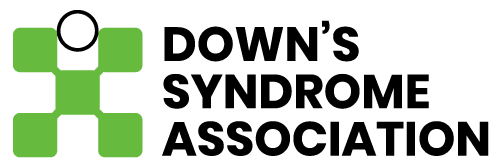Learning Disability Today
Blue Sky Offices Shoreham
25 Cecil Pashley Way
Shoreham-by-Sea
West Sussex
BN43 5FF
United Kingdom
T: 01273 434943
Contacts
Alison Bloomer
Managing Editor
[email protected]
[email protected]
Blue Sky Offices Shoreham
25 Cecil Pashley Way
Shoreham-by-Sea
West Sussex
BN43 5FF
United Kingdom
T: 01273 434943
Contacts
Alison Bloomer
Managing Editor
[email protected]
[email protected]
Recover your password.
A password will be e-mailed to you.

When NICE guidance is issued there could be an additional section (universally adopted across all NICE documents) that details ways in which an intended audience needs to consider how the guidance specifically relates to people have a learning disability. This could include examples of reasonable adjustments that may need to be made for the learning disabled population.
The Down’s Syndrome Association believes that it would be useful to have a NICE endorsed guideline that is based upon the Down’s Syndrome Medical Interest Group‘s basic medical surveillance for people who have Down’s syndrome Guidance for Essential Medical Surveillance – DSMIG. Being NICE endorsed would give this existing document far greater impetus.
We also recommend the introduction of a NICE guideline for dementia and learning disability that adopts the British Psychological Society good practice guidance, ensuring that baseline assessments of cognition should be carried out for all people who have Down’s syndrome by the age of 30. See Dementia and people with learning difficultiies.
The sector should expand on training delivery that focuses on strategies to address health inequalities. This should be at i) undergraduate or initial training for medics, nurses and allied health professionals and ii) as part of an individual’s continuing professional development.
There should be closer work with partners including the NHS, Royal Colleges, the LeDeR programme and DHSC in existing strategies that explicitely seeks to tackle health inequities.
There needs to be information that is regularly shared with people who have a learning disability and their families about how to keep healthy (this should always include the provision of Easy Read materials).
Information should also be shared about how to seek help if unwell and how to raise a complaint if access to healthcare has been unsatisfactory (again, this should always include Easy Read materials).
The sector can help to promote recognised DHSC training and awareness resources including:
We believe there needs to be greater investment in more Community Learning Disability Nurses.
The sector could also share best practice in relation to how different areas have improved their uptake of NHS screening services for people who have a learning disability, including:
It is necessary to consider offering the above programmes to people who have a learning disability at a younger age than the general population, as many people who have Down’s syndrome, for example, experience health conditions associated with ageing at a younger age.

Prev Post
Next Post
Recover your password.
A password will be e-mailed to you.

